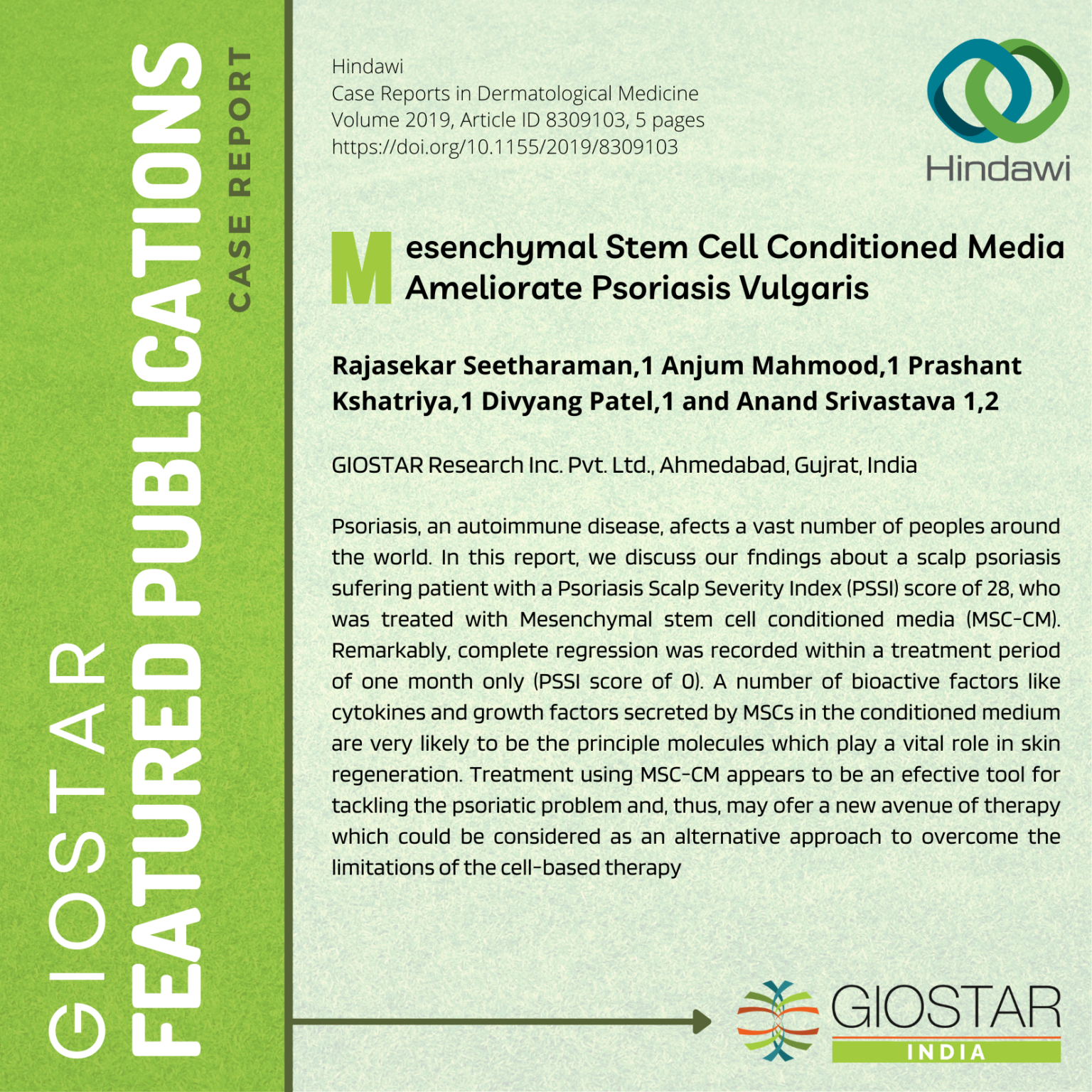
Mesenchymal Stem Cell Conditioned Media Ameliorate Psoriasis Vulgaris
Abstract
1. Introduction
Mesenchymal stem cells (MSCs) are multipotent adult stem cells which have an excellent capacity to proliferate for an extended period of time while maintaining the undifferentiated cell status. The resulting daughter cells can differentiate into various types of cells of host tissues and thus help repair wear and tear incurred [10]. MSCs have a potential to serve as a powerful tool in cell-based therapy due to their tissue regenerative and host immune modulatory capabilities. The functions exhibited by MSCs have attracted a number of scientists and clinicians to investigate the mechanisms involved in their curative and tissue regeneration functions. A very few articles have reported the effectiveness of stromal vascular fraction (SVF)/MSC therapy in curing psoriasis by regulating the immune systems. Lee et al. [11] reported that human umbilical cord blood-derived mesenchymal stem cells (hUCB-MSCs) ameliorate psoriasis-like skin inflammation in mice and have regulatory effects on immune cells including CD4+ T cells and dendritic cells. The first case study on intravenous infusion of SVF into psoriasis patient demonstrated a significant decrease in symptoms with a noticeable difference in skin appearance, psoriasis area, and severity index (PASI) score reduction (from 50.4 to 0.3) [12]. Chen et al. [13] reported that umbilical cord-derived MSC (UC-MSC) infusion effectively reduced psoriasis in human subjects. It was believed that MSCs’ migration into the skin lesions and their immunomodulatory, autoimmune inhibitory, and paracrine effects were the principal factors behind the ameliorative effects. Other recent preclinical studies have shown that stem cell-derived conditioned media (CM) exhibit effective healing of psoriasis-like wounds and thus CM is an alternative for several cell-based therapies [14, 15]. The paracrine factors including growth factors, chemokines, and cytokines secreted from stem cells play a major role in wound healing [16] and these molecules are present in CM or spent medium harvested from cultured cells [17]. In short, CM can serve as a novel treatment approach in regenerative medicine which has been shown to have a successful outcome in preclinical studies. However, a very few reports are available on the clinical application of CM for treatment of any disease. Based on the principles and importance of CM, the present study was aimed at investigating the effect of MSC-CM on a patient suffering from psoriasis. This study is believed to be the first clinical report on the use of MSC-CM to treat psoriasis.
